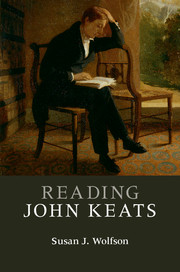Book contents
- Frontmatter
- Dedication
- Contents
- List of figures
- Preface
- Acknowledgments
- Note on the texts
- List of abbreviations
- 1 Life and times
- 2 Conceiving early poems, and Poems
- 3 Falling in and out of love with Endymion: A Poetic Romance; rereading King Lear
- 4 Venturing “new Romance”: Isabella; or, The Pot of Basil. A STORY FROM BOCCACCIO
- 5 Falling with Hyperion
- 6 Still Romancing: The Eve of St. Agnes; a dream-sonnet; Labelle dame
- 7 Reforming the sonnet and forming the Odes of spring 1819: Psyche; Nightingale; Grecian Urn; Melancholy; Indolence
- 8 Writhing, wreathing, writing Lamia
- 9 Falling in Fall 1819: The Fall of Hyperion and To Autumn
- 10 Late poems & lasting Keats
- A few famous formulations
- At a glance: Keats in context
- Notes
- Further reading
- Index
9 - Falling in Fall 1819: The Fall of Hyperion and To Autumn
Published online by Cambridge University Press: 05 June 2015
- Frontmatter
- Dedication
- Contents
- List of figures
- Preface
- Acknowledgments
- Note on the texts
- List of abbreviations
- 1 Life and times
- 2 Conceiving early poems, and Poems
- 3 Falling in and out of love with Endymion: A Poetic Romance; rereading King Lear
- 4 Venturing “new Romance”: Isabella; or, The Pot of Basil. A STORY FROM BOCCACCIO
- 5 Falling with Hyperion
- 6 Still Romancing: The Eve of St. Agnes; a dream-sonnet; Labelle dame
- 7 Reforming the sonnet and forming the Odes of spring 1819: Psyche; Nightingale; Grecian Urn; Melancholy; Indolence
- 8 Writhing, wreathing, writing Lamia
- 9 Falling in Fall 1819: The Fall of Hyperion and To Autumn
- 10 Late poems & lasting Keats
- A few famous formulations
- At a glance: Keats in context
- Notes
- Further reading
- Index
Summary
Poetry versus philosophy / poetry reverses philosophy
When Another Version of Keats's “Hyperion” appeared in 1857 in Miscellanies of the Philobiblion Society 3, it was taken to be the original housing of Hyperion, not least because the first half is a dream-frame prequel. This was actually a post-composed back-story, the work we now know as The Fall of Hyperion, A Dream. Recasting direct epic narration into the rehearsal of an inward turning of dream-vision, Keats's new version is intensely self-involved. It opens with an “induction” on the character of the poem at hand; then the dream-frame takes the poet to an interrogation by the severest of muses, Moneta, sole survivor and repository of the Titans' catastrophe, whose brain holds it all. The poet enters her memory, its text supplied by a refreshed, refashioned Hyperion.
The belated publication of Another Version proved timely in its address to mid-century debates about poetic visions and poetic idealism amid the energies of the modern world. Is the poet a relevant philosopher? a potential benefactor? or just a fever? For Keats, the debate had sharpened in the interval between his first attempt, as Tom lay dying, and his return, when, like Hyperion, he had lost his brothers (George to another world). How to write the fall of Hyperion into a philosophy of intellectual ascent was still the question. An entire career of favorite fancies and tropes, of debates about beauty, poetic force and agency, dreaming and awakening, immortality and mortality, come back into play in The Fall. Recall Keats thinking with Bailey late in 1817 about the “consequitive reasoning” of the “Philosopher” versus the momentary starts of a poet's “Imagination,” or the maturing of a “philosophic Mind” against his sigh, “O for a Life of Sensations rather than of Thoughts!” (K 69). The question soon dovetailed into the creative force of “negative capability” over thinking “incapable of remaining content with half-knowledge” (K 78).
- Type
- Chapter
- Information
- Reading John Keats , pp. 123 - 135Publisher: Cambridge University PressPrint publication year: 2015

